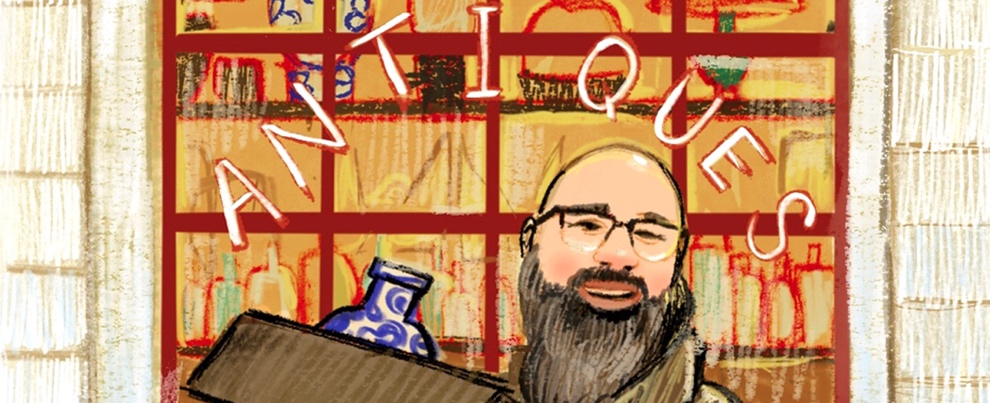The hunt for antiques can lead a person into unexpected tangents. For some, it’s a passion for military memorabilia, or soft-drink swag, or pocket watches, or delicate ceramics.
For Cees van den Hoek, it led to something bigger.
“If there’s anything I collect, it’s old buildings,” he laughs.
He runs the Antiques Exchange in Great Village, N.S., which sprawls over four historic buildings. The business began in 2012, but the seeds were planted earlier, when he lived in Ontario and worked in a different field.
“I’ve always liked old things,” he recalls. “I’ve never been a collector too much. I would have a handful of cool things around. I like the history … One of my clients told me I should go to an auction, and I got hooked. I ended up with a lot of stuff.”
If you’re curious and keen to discover more, but unsure where to start, he encourages you to follow a similar path.
Auctions are often an enjoyable spectacle and a fun place to begin your explorations, advises van dan Hoek, plus you can get some outstanding deals. He recommends keeping an eye out for “box lots,” which are collections of various items sold together for one price. “Sometimes you find something really cool,” he adds.
But be cautious. Whether you’re in the frenzied atmosphere of an auction or stumbling across a unique treasure in a shop, it’s easy to impulse buy and overpay. Watch out for auction fever: avoid getting caught up in the competitive excitement of a bidding war and blowing your budget.
“It pays to shop around,” he says. “I used to do a lot of yard sales. That’s where you can talk to people, make it personal, build relationships.”
That’s important because often at a yard sale, the best discoveries won’t necessarily be sitting out front. If someone is selling baby clothes and toys, you’re probably not going to find much. But an intriguing collection of interesting little relics can foretell other discoveries. As sellers chat, they’ll often volunteer that they have something much better, like a classic piece of furniture or art, inside.
“As you talk, you can judge whether they have more good stuff or not,” he explains. “You’d often go back to the same place several times. Sometimes you have to wine and dine to get a piece you want. You have to feel people out. People will want to research and think about it.”
 With Atlantic Canada’s long martial history, military items are often in demand. There are lots around, but they can be hard to find.
With Atlantic Canada’s long martial history, military items are often in demand. There are lots around, but they can be hard to find.
“A lot of families like to hold on to their military items,” van dan Hoek says. “Every old house holds an attic with a trunk. Here in Great Village, three or years ago I was cleaning out a battlefield doctor’s house and found a trunk with all his old clothes and stuff from the Second World War. Some were still bloodstained. I ended up selling that on eBay and people went crazy … Having the opportunity to see and handle it keeps the stories alive.”
If you think you have a treasure and would like to pass it on, it’s important to know its worth and significance, so you don’t give it up too cheaply or have unreasonable expectations.
“The internet is great for that,” he says. “There’s a lot of information out there. You’ve got to take a lot of it with a grain of salt, but it’ll give you a bit of an idea, and that’s when you can talk with the experts. They love to talk in person. What’s irritating is when you don’t do the basic research. People don’t want to be taken advantage of. Educate yourself. Put the effort in and you’ll see results.”
There aren’t a lot of concrete rules for antiquing. Ultimately, it’s a hobby of trial and error. Sometimes you’ll pay more than you should have. Sometimes you’ll realize you let something dear go too cheaply. The jackpot comes when you realize you have a timeless piece to bequeath to loved ones, a treasure that reignites long dormant memories, and revitalizes a connection to our past.
“I wish more people would think about buying used and vintage,” van dan Hoek says. “The carbon footprint has already been paid for that stuff. Is our disposable society making people happy? Put the effort into finding old furniture that’s something your kids will want, not the pressboard from Ikea or wherever. It’s good for the environment and there’s the satisfaction of preserving something unique yourself. That’s kind of undervalued.”
